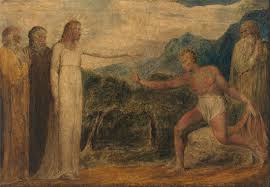I’ve been blogging through Sue Monk Kidd’s When The Heart Waits: Spiritual Direction For Life’s Sacred Questions. The final chapter in this book about midlife’s transitions is entitled “Unfurling New Wings”. (Earlier installments in this series can be found here.)
If all souls developed in cookie-cutter fashion, we would have spirituality by duplication rather than by waiting and transformation. Yet the tendency exists among Christians to want everybody to be at the same place at the same time. You know how it goes. Everybody should be actively ministering. (But even Jesus had seasons of waiting as well as ministering.) Everybody should be happy. (But even Jesus was at times sad, anguished, and in pain.) Everybody should be relating to God in the same way. (But even Jesus related to God in different ways – sometimes inwardly, sometimes outwardly.) What would happen if we allowed people to unfurl their wings and move into the fulness of being each in her own time and way?
 This desire for conformity to certain norms and ideals is what sometimes passes for discipleship during the first half of life. Too many churches lean heavily on the cookie-cutter notion of followership. It’s a tricky business, as discipleship is about modeling faith so it can be both caught and taught by the next generation. However, sometimes peer pressure substitutes for genuine spiritual direction – direction that includes waiting and trusting God to do the transforming. Our own awkward middle school years should have taught us that peer pressure rarely leads us to become the people God made us to be.
This desire for conformity to certain norms and ideals is what sometimes passes for discipleship during the first half of life. Too many churches lean heavily on the cookie-cutter notion of followership. It’s a tricky business, as discipleship is about modeling faith so it can be both caught and taught by the next generation. However, sometimes peer pressure substitutes for genuine spiritual direction – direction that includes waiting and trusting God to do the transforming. Our own awkward middle school years should have taught us that peer pressure rarely leads us to become the people God made us to be.
Sue Monk Kidd notes that as midlife’s wait in the dark slowly, almost imperceptibly gives way to the dawn of second adulthood, the transition leaves us with some gifts. These include delight in God, a deeper connection to God’s nurturing care of us, a richer appreciation for creation, an awareness of what it means to inhabit the present moment, and greater authenticity in our relationships. Some conservative readers may stumble a bit over the feminine language and imagery Kidd uses to discuss God’s nurture, but I’d encourage them to step back a bit and consider what she’s expressing to her readers about midlife, as well as remembering the tender reality of God’s self-revelation to us as El Shaddai in the Hebrew Scriptures.
The gifts of midlife are summed up in the word ‘compassion’. If we allow the darkness of midlife to do its work in us, we will emerge better able to care well for ourselves and others.
Through our suffering, waiting, and growing we tap more of the compassionate we experience. It’s hard to do unless we first find our authentic self and become an I…It’s only because we’ve found our individual boundaries and truth that we can cross them to find a genuine oneness with others (and not lose ourselves in the process).
Compassion, or “suffering with”, is empathy, not pity. Most of us know without explanation which once we’ve experienced if we’ve shared a struggle with another person. If we’re willing to wait in the confusion and disorientation with God, midlife can move us toward true compassion for ourselves and others. We will look and act more like the Son as we emerge from the darkness into the second half of our lives.
* * * * * * *
For those of you who’ve followed my journey through this book – or those of you who’ve just happened by for this final post in the series – a couple of parting thoughts. If I could only recommend one book for those trying to make sense of the spiritual transitions of midlife, it would be Richard Rohr’s Falling Upward. I blogged through that book a couple of years ago. (Click here for links to the series.) When The Heart Waits is certainly an easier read, and does touch upon many of the same themes as Rohr’s book. I’ve noted before that you may not agree with every theological statement in either of these books. I didn’t either. But I can’t overstate the value of having a thoughtful and compassionate (!) guide through this bewildering, inside-out passage in life. Both books are worth including in your library if you’re interested in spiritual formation.
Rohr’s book addresses both the individual and the church community, and I believe both need to be engaged as we journey through midlife. The Dones phenomenon in church life has significant overlap with the questions and issues that arise at midlife and beyond. I’ve written frequently in this space about midlife and the church because I long for leaders to think seriously about how they can support and cultivate spiritual growth among those in the second half of life.
These books, and the writing I’ve done here, are meant to come alongside those of you waiting in the darkness. You are not alone, friend.
Friendship is born at that moment when one man says to another: “What! You too? I thought that no one but myself…” – C.S. Lewis
Image via Creative Commons 2.o search/Wikimedia











